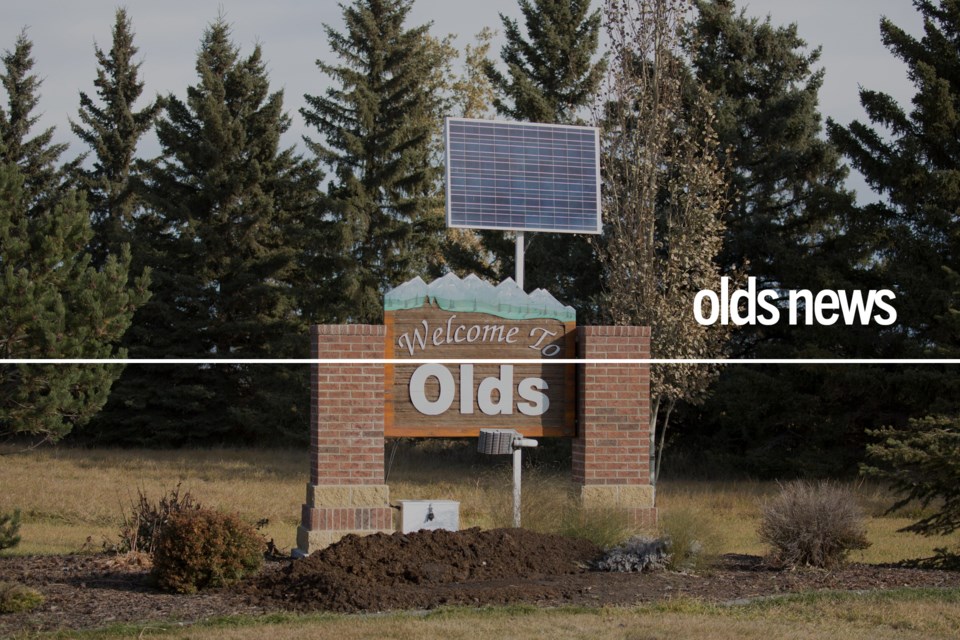OLDS — Some time in the next several weeks, the Town of Olds' council will set its tax rate bylaw.
The assessed value of property is a factor in setting taxes. When they get their tax notices, some property owners are happy if their tax bill has gone down. Others are not so happy if theirs has risen.
Grant Clark of KCL consulting, who conducts property assessments for the Town of Olds, gave a presentation to council during its March 24 meeting.
During that approximately 40-minute presentation and question-and-answer period, Clark said on average, residential property assessments have shot up 24.72 per cent over the last three years, while commercial assessments in Olds have only risen two per cent.
He speculated that the sharp rise in residential property assessments could, at least in part, be due to the number of people moving into the community.
Clark said relatively flat commercial/industrial values could be due to the fact that there’s “limited amount of demand for new business in the town, and therefore, limited demand for industrial and commercial property.”
There are several important dates that help determine those figures.
One of the most important is July 1 of the previous year; (July 1, 2024, for the 2025 tax year).
“You have to think back to July 1, and what was the market doing in the spring of 2024,” Clark said.
The physical condition date is Dec. 31 of that year. So for example, if in the fall, someone added a garage to their property, its value would be backdated to what it would have been on July 1, 2024.
The big date for machine equipment valuation is the end of October.
Clark said determining assessments is a complicated procedure.
He said by law, assessors in Alberta are required to use mass appraisal, common data and statistical testing when determining property appraisals.
That means taking all cost data associated with all property, putting it in a database and adjusting it to the market, using some statistical analysis.
The same is done with income.
“We put all the information in our database, adjust it for mass averages and adjust the assessment value to something that is typical based on the income data.”
Assessors also obtain sales date for properties from the Land Titles Office.
Once all that data has been obtained, assessors synthesize it to determine property assessments.
Clark said a property owner’s assessment is their share of the “tax pie.”
“A common question we get when we're talking to property owners is ‘the tax rate went down. Why didn't my taxes go down,’” Clark said.
“If there was no increase in the tax pie, and the tax rate is offset, the tax rate goes down, the taxes remain the same,” Clark said.
“In the end, the average change in assessment equals average tax increase.”
Clark said as of July 1, if property owners think their assessment is unreasonable, they can file a complaint and they have 60 days from the date on their tax notice from which to do so.
He said the onus is on the property owner to demonstrate that the value is incorrect.
Clark said the best way to contact his company is through its website and filling out the inquiry form there.
He said complainants can also phone the company or contact the Olds town office.
Coun. James Cummings asked Clark if he gets “a lot of inquiries from our citizens saying, ‘hey, what's up with our assessment?’”
“It depends what happened to the tax rate or the taxes, year over year,” Clark said. “So we do get fair number of questions, but if there is a big jump in taxes, we'll get more.”
Coun. Heather Ryan asked Clark about his experience in the appraisals field and specifically in Olds.
Clark said he’s been doing property appraisals for more than 35 years, about 20 years in Olds.
Noting that Clark does assessments for several other communities, Coun. Dan Daley asked Clark what in his opinion would be “a healthy residential, non-residential split” within the Olds tax system.
Clark stressed that the assessor’s role is to determine the assessed value of property independently from municipal governments.
“The role of council, together with administration is to reason through what would be an appropriate split between those two and what's in the best interest of the community, as opposed to me preparing those tax pies and then turn around and saying, ‘this is how you should distribute them.’ So we try to stay away from that part of the equation,” he said.
Clark was asked if inflation is taken into account when calculating assessed property value.
He suggested inflation is baked into real estate prices.
“I focus on the tax pie. What did it do last year? Year over year,” he asked.
Ryan asked if town officials can expect assessments to keep rising.
Clark said in essence, that depends on what buyers and sellers of property think are reasonable prices, depending on a myriad of variables.
“As far as forecasting going forward, my many years (have) taught me not to do it,” he said.
“I wish I knew what the market was going to do, but, but I don't. So that's a bit of a challenge.”
Cummings agreed that assessed residential property values in town have continued to rise lately and said he can’t foresee a time when they’ll fall over a long period.
“It doesn't seem natural to me in our society that we would ever see a downward slope over a longer period of time,” Cummings said.
Clark wasn’t so certain.
He said the 2008 stock market crash depressed or “plateaued” values and this year, it’s uncertain what effect tariffs will have on them.
“Who knows what the impacts of tariffs are going to have? It could be sudden. It could be fairly significant, and how that will play on the marketplace, I don't know,” Clark said.



